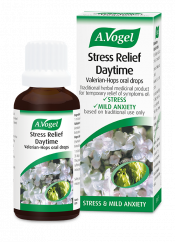What are panic attacks?
Panic attacks are characterised by periods of acute anxiety, fear or feelings of apprehension which appear suddenly. These symptoms are usually brief (lasting less than 15 minutes) and often resolve without the need of any treatment.
Panic attacks can give rise to a wide range of other symptoms. They usually come about as a result of being under stress or following receipt of bad news.
People prone to panic attacks may experience symptoms of anxiety before attacks take place, but this is not always the case. Symptoms of panic attacks overlap a great deal with those of stress and anxiety.
Physical symptoms of panic attacks
Symptoms arise because of the body’s natural response to danger, known as the ‘fight or flight’ reaction. This normal response releases ‘stress’ chemicals into the blood stream and leads to a number of physical symptoms such as:
- Faster heartbeat (causing pounding of the heart)
- Shortness or quickening of breath (hyperventilation)
- Difficulty breathing (trouble taking a deep breath)
- Difficulty swallowing (a choking sensation)
- Muscle tension (giving rise to muscle cramps or spasms and pain in the neck or shoulders)
- Feeling faint and nauseated
- Sweating and flushing
- Dry mouth
- Tingling all over
To an onlooker, the most obvious symptom marking a panic attack is quick and shallow breathing. This is known as hyperventilation (excessive breathing) and can give rise to symptoms of tingling, starting from the ends of the fingers and toes, as well as muscle spasms or cramps (usually in the hands).
The reason for this is that breathing too quickly reduces the carbon dioxide levels in the blood, changing the acidity in the body which in turn, affects the way nerves and muscles function.
Panic attack symptoms are more pronounced than those of anxiety. However, the good news (if there is any) is that they are relatively brief, usually lasting just a few minutes.
If you feel that the symptoms of your panic attacks last longer than 15 minutes, you should seek the advice of a doctor.
Emotional symptoms of panic attacks
Symptoms of panic attacks usually come as single or isolated episodes when under a bit more stress than usual or as a result of over-excitement. They do not tend to recur or return. In these circumstances, most people who suffer these episodes overcome the surprise of the symptoms quickly, without problems.
However, people who are more prone to stress and anxiety may suffer from recurrent or frequent panic attacks. These can worsen their feelings of anxiety, leading to:
- Loss of self-confidence or self-esteem
- Feeling irritable, impatient, short-tempered, restless or ‘on-edge’
- Becoming prone to being negative, worried, feeling low in mood or depressed
- Having a sense that ‘something is about to go wrong’
- Poor concentration, easily distracted, having a poor memory
- Feeling you can’t cope with normal everyday pressures
- Relying more on alcohol or cigarettes in order to cope with the symptoms
If you suffer from panic attacks and if the emotional symptoms described above are prolonged or worrisome, you should see your doctor.








